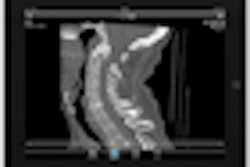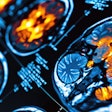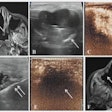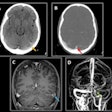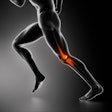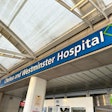
BUDAPEST - The quality of a hospital's equipment, along with patient protocols and the skill sets and training of staff, all require constant attention if an echocardiogram is to produce an effective result, according to Dr. Kevin Fox, honorary clinical senior lecturer in the National Heart and Lung Institute at Imperial College London.
"You need good staff. You need to be working in a good environment, a good lab. But all of that is as nothing if the images you produce are not of quality themselves. That makes a real difference to the information provided to the clinicians," he told the Basics of Cardiac Ultrasound teaching course at last week's EUROECHO & other Imaging Modalities conference in Budapest. "Our measurements matter very dramatically, we need to be very sure a 10% change is a true change, and not a measurement error."
In other words, operators who know their equipment and training is up to date and up to standard perform better. Furthermore, echo-labs that perform well and provide a quality, reliable service are more likely to attract the funding they need for new equipment, because they will have the support of other departments on purchasing decisions, he said.
 CT and MRI featured in the scientific program of EUROECHO, the annual congress of the European Association of Echocardiography, held in Budapest from 7 to 10 December. Image courtesy of Robin Marshall.
CT and MRI featured in the scientific program of EUROECHO, the annual congress of the European Association of Echocardiography, held in Budapest from 7 to 10 December. Image courtesy of Robin Marshall."Quality assurance is important because it is. But that is not enough nowadays. It is also important because of what it does for you, your team, and your department," noted Fox, adding that the picture as to who has quality controls in place, and of what kind, is variable across Europe, and is more advanced in the U.S.
There are no set rules, even though organizations such as the European Association of Echocardiography (EAE) do lay down guidelines, and Fox was keen to point out that he wasn't suggesting his own department was perfect. For many people, establishing quality assurance programs is a work in progress, he said.
But the very process of introducing a rigorous quality assurance scheme brings its own benefits, and helps ensure users know how old their equipment is, when it was updated, and when it was last serviced. Regular internal reviews of difficult cases are a way of formalizing the practice of stopping a colleague in a corridor and asking him or her to 'check this image,' he explained. It also has the obvious benefit -- for all parties -- of bringing record keeping into that process.
"From there, it ought to be a simple process to add random reviews of all cases," Fox said, admitting this was not something his own department did yet, but it should be introduced in time.
A key concept to the work of all cardiographers, of course, is teamwork, and there needs to be agreed methods of measuring, recording, and re-reading data, another area quality assurance can address. They must work in teams, so they need to know that if they measure in a certain way, their colleagues will do the same, he said. And that might be the difference between recording a mildly impaired ventricle, for example, and a very mildly impaired ventricle.
The British Society of Echocardiography now assesses the echo readings of its members, taking the images and findings from a team and having a national board look at those and then report back. "In a sense this is both continuous education and quality assurance, but the feedback on echo leads and whether your reading was agreed by the national panel, whether there was a significant difference or not, is very valuable," Fox pointed out. Waiting for the results could prove a nervous time, no matter how many years you have been a cardiographer.
Fox had no doubt as to the importance of quality assurance, and said he was passionate about the subject. "Ultimately, a quality echo requires that a high quality image is taken," he concluded. "The most significant thing that we can do is to ensure that the report and images we give to our colleagues to manage a patient are an accurate and true reflection of what is there."





